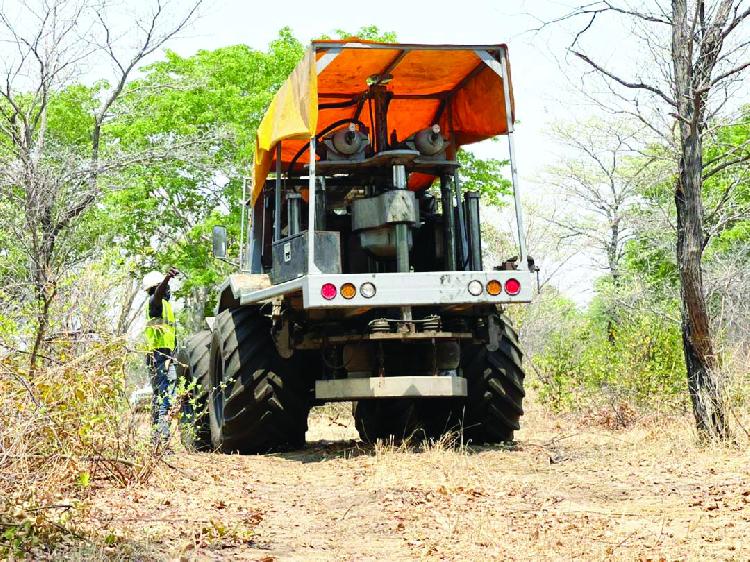Africa-Press – Namibia. TJEKERO Tweya, the chairperson of the parliamentary standing committee on natural resources, yesterday rapped the Kavango East communal land board on the knuckles for not taking action against ReconAfrica.
He said the board should have issued the Canadian company a fine and stopped its oil-exploration activities for operating without being granted the right to lease the involved land.
The board yesterday appeared before the parliamentary committee. ReconAfrica has been drilling for oil in the areas of Kawe and Mbambi since January, however, documents show the right to lease the Kawe site was only approved in September.
The right to lease Mbambi is yet to be approved due to claims of existing customary land rights. “It has now been established that ReconAfrica started without the leasehold certificate. The land board became aware of it and did not act. The board failed to execute their mandate,” said Tweya.
In terms of the Communal Land Reform Act, an application is made to the relevant traditional chief or authority when applying for a customary land right.
If approved, the application will be sent to the communal land board for final approval. Until the land board gives its final approval, a company or individual does not have a right to the land in question.
For the Kawe site, the traditional authority provided a consent letter in March – two months after ReconAfrica started its operations, while the Kavango East communal land board only gave the approval for the Kawe site nine months after operations commenced.
The application received objections from the Legal Assistance Centre, the Kapinga Kamwalye Conservancy, and the Namibia Chamber of Environment. “It’s clear ReconAfrica started operations without a leasehold certificate, and as an independent body you have failed in your mandate to do anything about it,” Tweya said.
Based on the law, the communal land board was supposed to impose a fine and stop ReconAfrica’s operations until the leasehold certificate has been granted.
Bernadino Mbumba, the chairperson of the Kavango East regional land board, said they can still fine ReconAfrica 11 months after the company started its operations without a leasehold.
He said the board’s hands were tied because the government had already approved ReconAfrica’s activities in Namibia. “Who are we as the land board to stand and say [no to ReconAfrica]?” he asked. Mbumba said the government is not being truthful regarding ReconAfrica’s operations.
“ReconAfrica has sponsored the Ministry of Health and Social Services with N$15 million, which is authorised here in Windhoek, but today we are talking about the legality of ReconAfrica in the village,” he said.
“This … is not good from the side of the government,” he said. Mbumba said there is a lack of sectoral coordination as the Ministry of Mines and Energy did not follow the amended Communal Land Reform Act.
He said the ministry ought to have notified the board and traditional authorities of the intention to apply for oil and gas exploration before such applications were brought by ReconAfrica.
“The Kavango East Communal Land Board as important stakeholders did not participate in the environmental impact assessment (EIA) process,” he said.
Last month, executive director of mines and energy Simeon Negumbo said: “Our mandate is a bit tricky. One is to attract investments, the second is to make sure that Namibians benefit from their own resources.
“Our task is to see the balance between the two.” ReconAfrica spokesperson Ndapewoshali Shapwanale yesterday said the company has been given the consent of the relevant traditional authority.
She did, however, not say why it commenced with activities without the Kavango East Communal Land Board’s approval. Shapwanale said ReconAfrica identified the sites for drilling wells with the traditional authority.
“ … the traditional authority as custodian of communal land then granted the company consent to enter the two locations and carry out drilling operations,” she said.
For More News And Analysis About Namibia Follow Africa-Press






